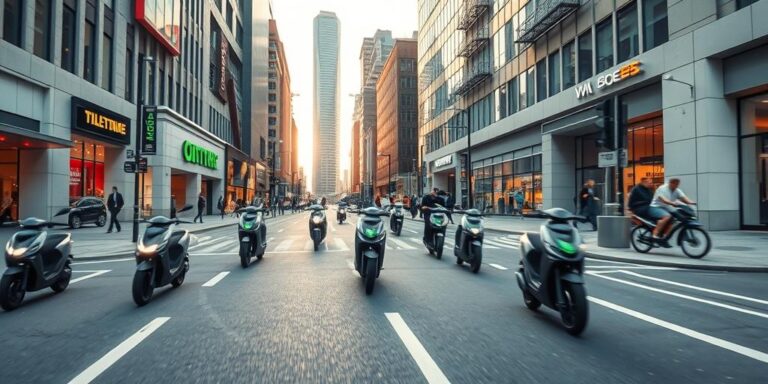The Future of Personal Electric Transportation (Scooters, Bikes – 2026)
The landscape of personal transportation is rapidly evolving, driven by technological advancements and a growing emphasis on sustainability. By 2026, electric scooters and bikes are poised to become even more integral to our daily lives. This article explores the key trends shaping the future of personal electric transportation.
Key Trends
-
Enhanced Battery Technology:
- Longer Range: Expect significant improvements in battery capacity, allowing for longer distances on a single charge. This will address a major concern for potential users.
- Faster Charging: Innovations in charging technology will reduce downtime, making electric scooters and bikes more convenient for everyday use.
- Improved Lifespan: Batteries will last longer, reducing the overall cost of ownership and environmental impact.
-
Smart Integration and Connectivity:
- GPS Tracking: Advanced GPS systems will provide real-time location data, enhancing security and navigation.
- Mobile App Integration: Seamless connectivity with smartphones will offer features like remote locking, performance monitoring, and customized riding modes.
- Data Analytics: Manufacturers will leverage data to improve vehicle performance, optimize routes, and enhance user experience.
-
Advanced Safety Features:
- Integrated Lighting Systems: Enhanced lighting will improve visibility, making scooters and bikes safer in low-light conditions.
- Anti-Lock Braking Systems (ABS): Wider adoption of ABS will provide better braking control, reducing the risk of accidents.
- Collision Detection: Emerging technologies may include sensors that detect potential collisions and provide alerts or automatic braking.
-
Sustainable Materials and Manufacturing:
- Eco-Friendly Materials: Manufacturers will increasingly use recycled and sustainable materials in the production of electric scooters and bikes.
- Reduced Carbon Footprint: Streamlined manufacturing processes will minimize the environmental impact of production.
- Recycling Programs: Initiatives to recycle batteries and vehicle components will become more widespread, promoting a circular economy.
-
Policy and Infrastructure Support:
- Government Incentives: Tax credits, rebates, and subsidies will encourage the adoption of electric personal transportation.
- Dedicated Infrastructure: More cities will invest in bike lanes, charging stations, and parking facilities for electric scooters and bikes.
- Regulatory Frameworks: Clear guidelines and regulations will ensure safe and responsible use of electric personal transportation.
Conclusion
The future of personal electric transportation is bright. With advancements in battery technology, smart integration, safety features, sustainable practices, and supportive policies, electric scooters and bikes are set to transform how we move around our cities. By 2026, expect to see a more connected, sustainable, and efficient transportation ecosystem, driven by these innovative vehicles.




